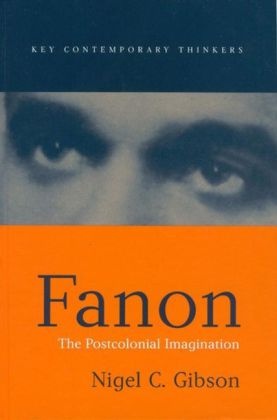Read more
Informationen zum Autor Nigel C. Gibson is Director of the Honors Program at Emerson College, Boston, and a research associate in the Department of Africana Studies at Brown University and the Department of Afro-American Studies at Harvard University. Klappentext Frantz Fanon was a French psychiatrist turned Algerian revolutionary of Martinican origin, and one of the most important and controversial thinkers of the postwar period. A veritable "intellect on fire," Fanon was a radical thinker with original theories on race, revolution, violence, identity and agency. This book is an excellent introduction to the ideas and legacy of Fanon. Gibson explores him as a truly complex character in the context of his time and beyond. He argues that for Fanon, theory has a practical task to help change the world. Thus Fanon's "untidy dialectic," Gibson contends, is a philosophy of liberation that includes cultural and historical issues and visions of a future society. In a profoundly political sense, Gibson asks us to reevaluate Fanon's contribution as a critic of modernity and reassess in a new light notions of consciousness, humanism, and social change. This is a fascinating study that will interest undergraduates and above in postcolonial studies, literary theory, cultural studies, sociology, politics, and social and political theory, as well as general readers. Zusammenfassung * An outstanding introduction to the work of Franz Fanon! one of the most important and controversial thinkers of postwar period. * Fanon was an anti--colonial / postcolonial critic whose work spans across the political and academic disciplines of philosophy! psychiatry! social science! and literature. Inhaltsverzeichnis Acknowledgments. Abbreviations for Fanon's Works. Introduction. 1. The Racial Gaze: Black Slave, White Master. 2. Psychoanalysis and the Black's Inferiority Complex. 3. Negritude and the Descent into a "Real Hell". 4. Becoming Algerian. 5. Violent Concerns. 6. Radical Mutations: Toward a Fighting Culture. 7. Crossing the Dividing Line: Spontaneity and Organization. 8. Nationalism and a New Humanism. Notes. Bibliography. Index ...

